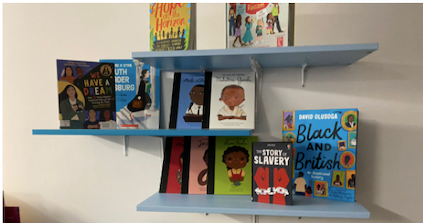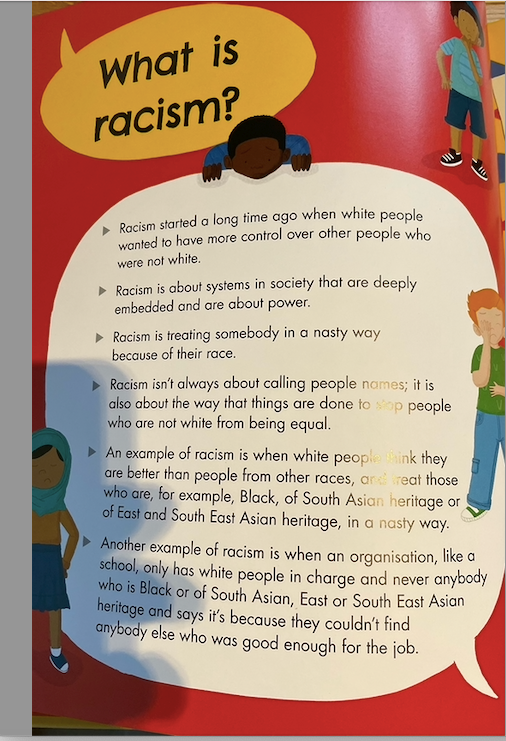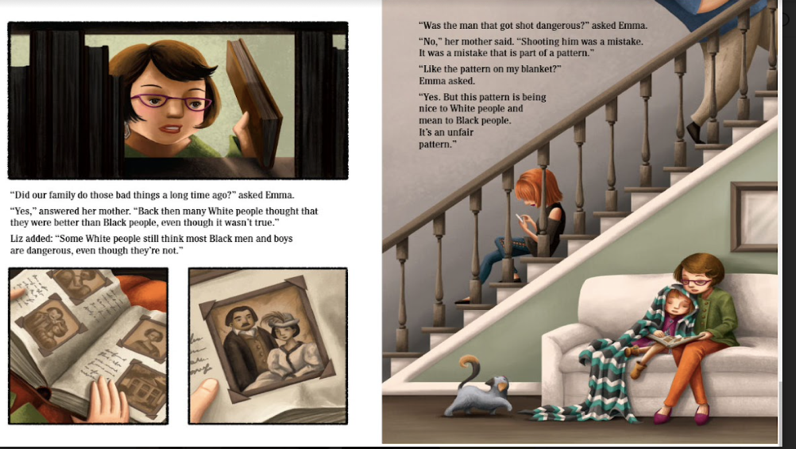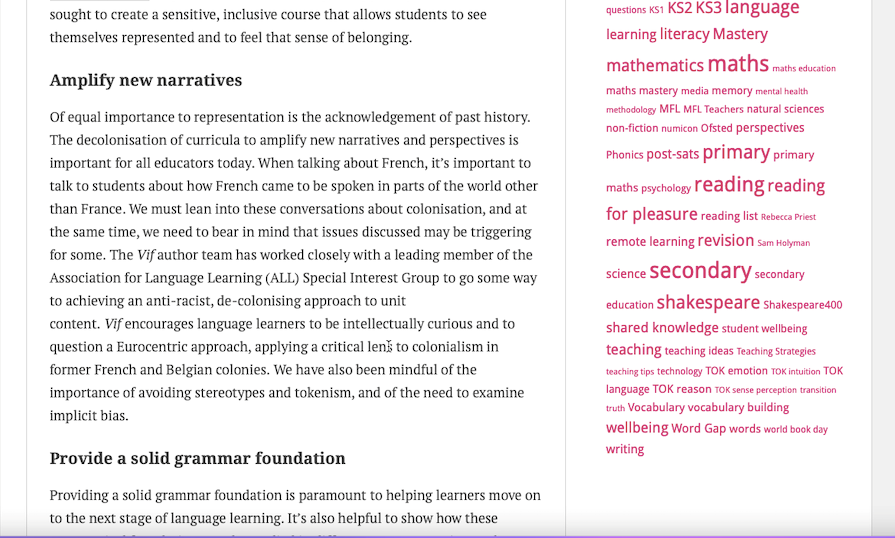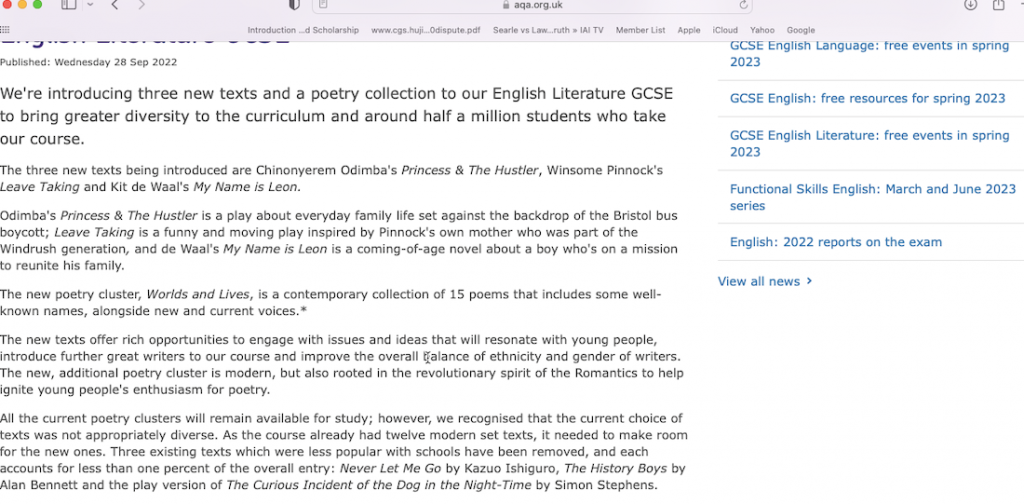Examples of Politically Partisan Content, Practices & Professional Development in Schools (part 2)
Below is a selection of recent examples that indicate that the education profession – from Exam Boards, educational publishers, Church of England Education Board, to local schools – are, wittingly or not, endorsing or promoting a minority-held, radical, narrative of British society, culture and history as systematically and institutionally racist. This is not the same as teaching contested ideas impartially: it is legitimising a radical ideology about race (rooted in Critical Race Theory) by delegitimising established, liberal ideas and practices about race (rooted in Enlightenment values and democratic politics). It is being introduced in schools through the following routes:
- Part 1: Partisan policies/ practices (examples 1 – 5)
- Part 2: Partisan Curriculum (examples 6 – 10)
- Part 3: Partisan professional development (examples 11 – 13)
- Part 4: Partisan professional associations (example 14 & 15)
Part 2: Partisan curriculum
Example 6: Partisan curriculum
This was the go-to response from one deputy head of a primary school in Cambridgeshire following a visit from a School Improvement official who said the reading wasn’t diverse enough. The school’s largest ethnic minority group are pupils from Eastern Europe. It raises the question, is the deputy head more concerned about being seen to follow a new orthodoxy, no matter how inappropriate, than considering the educational needs of pupils in the school? Children are unlikely to have developed the ability in abstract thought to understand concepts like ‘social systems’, ‘racism’ or ‘systems of power’ in little more than simplistic and moralistic terms. It is not justifiable educationally, even though the teacher in question may feel she’s doing the right thing.
Example 7: Partisan curriculum
This is from a book used in primary schools. It clearly promotes a politically partisan definition of racism. Like the example above, because the content is not appropriate for young children whose cognitive abilities are not fully developed, it encourages uncritical acceptance of the assertion that Britain is systematically racist.
Example 8: Partisan curriculum
This screenshot is from a book recommended in a London primary school. It appears in other school recommended reading lists as part of the school’s commitment to anti-racism. It is from Ann Hazard’s Something Happened in Our Town. Hazard is an American author who is using a children’s book to make huge assertions about group guilt and oppression. The themes are wholly unsuitable for children at primary level whose ability in abstract thinking, logical inferences and critical questioning at this level have yet to be developed.
Example 9: Partisan curriculum
The screenshot below is from an Oxford Press blog promoting a new Key Stage 3 (ages 10-14) French course, Vif. Its intended audience is teachers, senior leaders and heads who may well trust a major publisher to meet established educational criteria. Yet here Oxford Press is framing a traditional school subject through the lens of Critical Social Justice theory. Educationally, this is entirely inappropriate for this age group, who need to know French language, culture, history and politics before they can properly critique it.
Most parents might expect teachers to be teaching their 10- to 14-year-olds about the language and culture of France rather than teaching them to question the concept of Eurocentrism.
A major education publisher is endorsing a politically partisan position by making ethnic diversity a major criterion for selecting and framing school curriculum content. This approach does not have academic consensus, nor does it have a public mandate. Who exactly is saying ‘We must lean into these conversations about colonisation’?
Example 10: Partisan curriculum
Below is an extract from the website of a major UK exam board, the AQA, who are attempting to ‘bring greater diversity to the curriculum’. To do this they have decided to remove Noble Prize- winning author, Kazuo Ishiguro’s Never Let Me Go (along with The History Boys and The Curious Incident of the Dog in the Night-Time) from their recommended books and replace them with other women authors of colour because they want to improve ‘the balance of ethnicity and gender of writers’. Endorsing ethnic diversity as a criterion for selection also risks restricting the introduction of books of literary quality. For many, school may be the only place they will encounter such books. Those from families who already have ‘cultural capital’ are less affected because they are more likely to come across good literature at home.
Click here to add your own text
